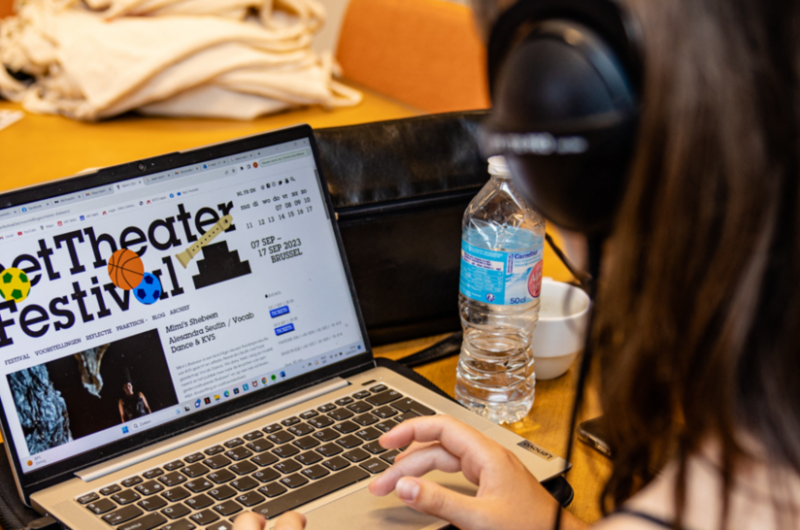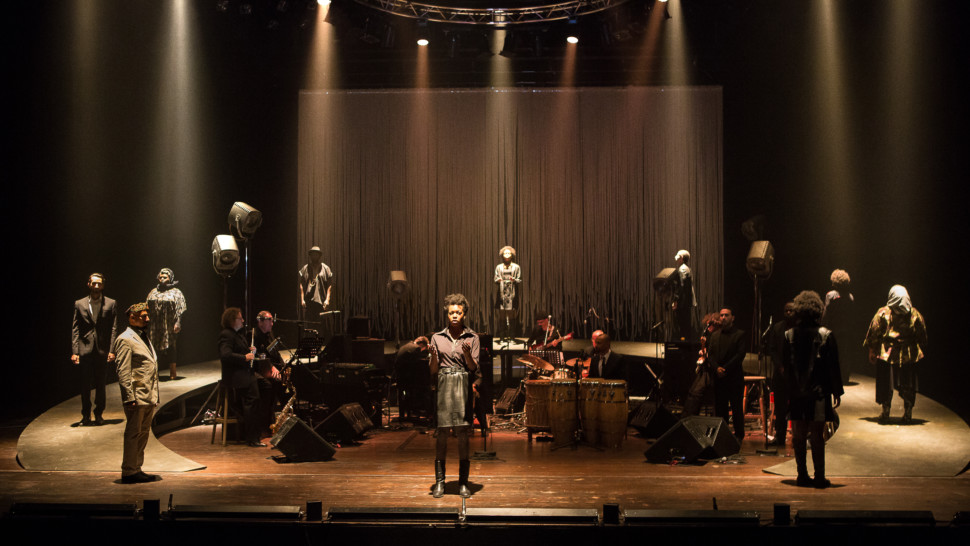
Stage: communicatie & sociale media
13 Maa 2024
vr 08 sep 2017

(c) Danny Willems
Junior Mthombeni grew up with music. When he was only 6 years old, he started playing the drums, from then on it became a true passion. He played with Wawadadakwa and the Internationals and formed Obatala. In his early twenties he was asked to participate in Tone Brulin’s Abjater wat so lag (1994) which marked the beginning of his theatrical career. As a director, music plays a leading role in his productions. Together with composer Cesar Janssens and writer Fikry El Azzouzi he recently formed the collective Junior Cesar. Junior Mthombeni: ‘We all get along very well when it comes to our taste in music. We have a different cultural background and therefore a different musical heritage. But there are a lot of similarities as well. Each of us has that rebellious character. Cesar is a punk with capital P. He used to play with the Kids, which was the most important punk band in Flanders.’
Junior Cesars’ production Malcolm X is a multi-lingual theater-concert. With different artists from all over the world it mixes slam poetry, hiphop and jazz music. The jazz music performed on stage was part of Malcolm X’s social environment. Junior: ‘The music is closely related to Malcolm’s life. He was actually in contact with several of the musicians. For a while he was even Billie Holiday’s drug dealer.’ Moreover, Junior underlines as well the importance of the political meaning of the performed songs. Junior: ‘Every song brings a political message. Examples are Revolution of Nina Simone, Strange Fruit by Billie Holiday and Fela Kuti’s Zombie. If you are aware of the tradition you understand the impact of those songs. Fela Kuti for example wrote Zombie after being attacked by the Nigerian government and the army. They broke into his home, took him away, locked him up and beat him up. They even assaulted his mother who was with Fela on that particular moment. He was living in a commune when they attacked him. There were a lot of bystanders who witnessed the attack. But they were just standing there and watched what happened. That experience encouraged him to write the song. As the bystanders were all acting like zombies. If people would have said ‘shoot’, they would have shot. They were all so obedient. So don’t be fooled by its cheerfulness. It is not just a nice song. In our tradition it is a political answer to socio-political problems. Just as every other song in the show, it has a burdensome aspect to it. And that is the importance of the music. It gives you power.’
Eline Van Lancker en Dina Dooreman
